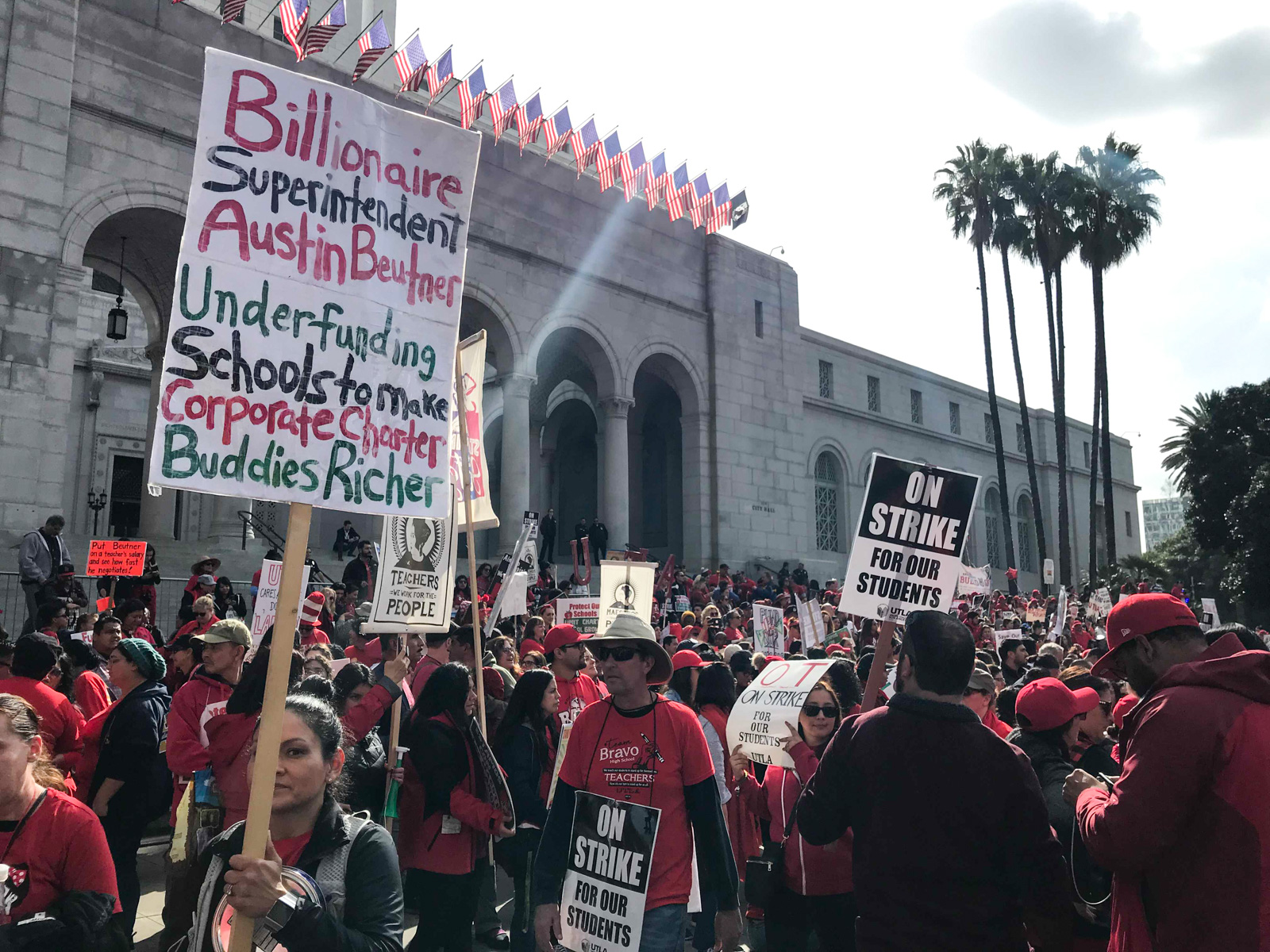California Lottery must be held accountable for providing public school funding

(Catherine Montgomery/Daily Bruin)

By Sabrina Huang
April 7, 2020 10:00 p.m.
We all know how the saying goes – more money, more problems.
And for the California State Lottery, which amassed nearly a staggering $7 billion in 2018 alone, the rise in profits has seen a disturbing rise in problems for California’s public school students.
In late February, a statewide audit revealed the California Lottery owes $36 million to the state’s public K-12 schools, community colleges and institutions of higher education – and that figure is only for the 2017-2018 fiscal year.
Established in 1984 to provide additional funding to California’s public schools, the California Lottery initially pledged 34% of its annual revenues to the state’s public education system. However, in 2010, the state legislature removed this requirement and instead allowed the Lottery Commission to arbitrarily determine an amount that “maximizes” funding for public education.
While school districts across the state have effectively been robbed of millions of dollars, perhaps no district stands to suffer as acutely as the Los Angeles Unified School District. In January 2019, a six-day teacher strike over low wages and inadequate funding wracked the country’s second-largest school district. A little more than a year later, voters rejected a bond proposal that would have given California’s public schools $15 billion to upgrade aging infrastructure.
The LAUSD simply cannot afford to lose more money, particularly from an agency whose mission is to fund public education.
State legislators have a moral obligation to hold the California Lottery to higher standards of accountability. To start, officials must impose regular audits and pass legislation that establishes a stricter allocation of the California Lottery’s revenue. In addition to increasing schools’ budgets for more teachers, textbooks and technological equipment, such measures can help the LAUSD prepare for unexpected emergencies, such as the public health crisis the United States now finds itself in.
And with no end in sight to the current COVID-19 pandemic, this increased accountability will help the district mitigate the devastating impacts of school closures and lost instructional time.
Because in times of crisis, students should not be left to shoulder the failings of an unchecked and irresponsible system.
Currently, 85% of students in the LAUSD live in households that fall below the poverty line. As schools across Los Angeles transition to online classes for the remainder of the academic year in response to a statewide order, students without the resources to afford technology and reliable access to Wi-Fi are excluded from receiving an education simply by virtue of their socioeconomic status.
Jasmine Lozano, a sixth grade teacher at Dr. Julian Nava Learning Academy in Los Angeles, said school closures have made it more challenging to educate her students as an already fragile education system deals with the fallout of the coronavirus outbreak.
“Access to technology (and the) internet has been the largest issue, even when we’ve provided the resources and materials for it,” Lozano said. “I’ve been on and off the phone for weeks with parents trying to make this all happen.”
While the district has taken steps to eradicate barriers to online learning, students are still struggling.
LAUSD Superintendent Austin Beutner reported that one-third of the district’s 120,000 high schoolers have not attended classes daily since the start of remote learning on March 16.
For Remi Torres, a UCLA doctoral student who specializes in research on early childhood and psychology, this is unsurprising.
“All children do not have equal resources to computers, good internet, books (or) intellectually stimulating materials,” Torres said. “Learning remotely is also not something children are used to and is more challenging for students that are already underperforming.”
Any additional dollars would have gone a long way in providing better services to students in a time of crisis, whether it be meals, laptops or training in online education for both teachers and parents, who, Lozano said, often cannot secure stable internet access for their children due to language barriers.
Without the proper infrastructure to secure funding, schools will be left scrambling for additional resources during unprecedented times, leaving already marginalized populations hung out to dry. And within the LAUSD, those populations are not insignificant. Currently, an upward of 17,000 students are homeless. For these students and their families, the pandemic will only exacerbate haphazard living circumstances.
“The COVID-19 pandemic is exposing injustices already in place,” said Hannah Chung, a UCLA medical student and co-director of communications for the organization Los Angeles COVID Volunteers. “The call to self-isolate and stay at home is an order that is a luxury for those who have a place to call home and for those whose jobs can be done through a computer.”
Another injustice is disparities in mental health. According to a recent study, the economic impacts of COVID-19 on low-income families has led to a decline in the mental health of both parents and children.
Torres said that poor mental health will interfere with students’ ability to learn and retain information, meaning the LAUSD may need to allocate more resources toward ensuring students are caught up on instructional material once schools open.
But the funding to do so will not appear out of thin air.
Considering the long-term effects of this pandemic, it is necessary for California to implement higher standards of transparency for the California Lottery to ensure that public schools get what they need – and deserve – in the years to come.
Although money from the California Lottery accounts for only about 1% of the state’s annual education budget, the lottery system has given a total of $34.2 billion to public education since its establishment nearly 40 years ago. The cumulative benefits of these funds for students, particularly those who are at a higher risk of subpar educational outcomes, would outweigh any additional costs incurred by the state for imposing stricter accountability measures.
California must hold its institutions to a higher standard.
Because without such foresight, the problems will only continue to grow – in both number and severity.


